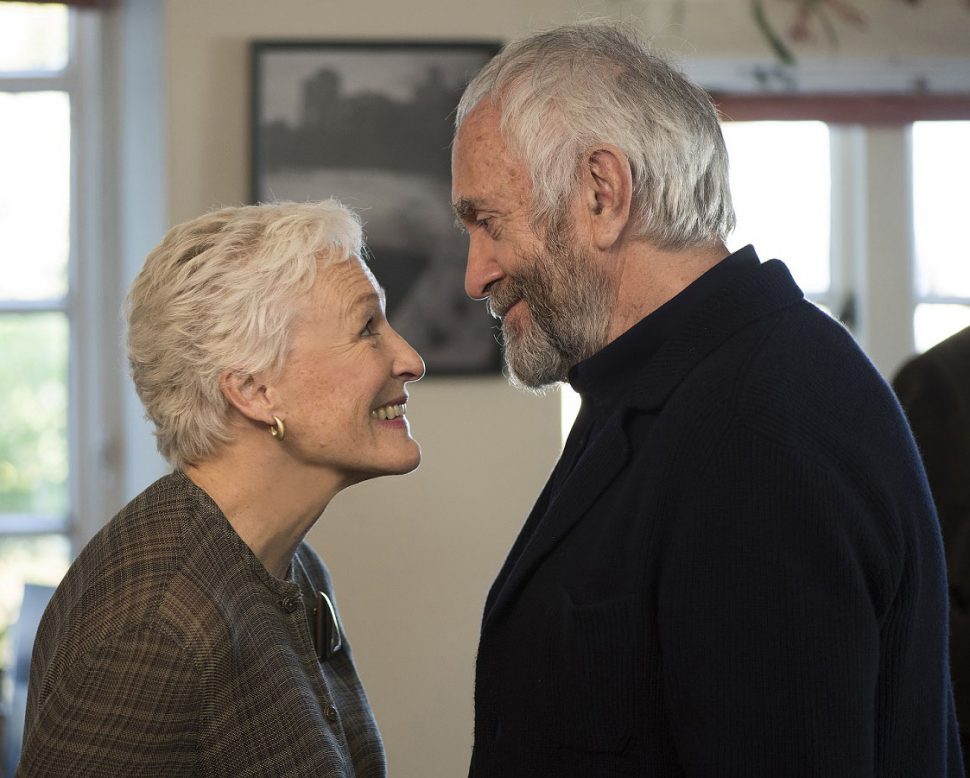
The secret that the film is constantly avoiding is, perhaps, obvious if you think about it. “The Wife” is no mystery. Rather, it’s about the things that people do to sustain a marriage. And, also, about the power imbalances that may come about in romantic relationships. Björn Runge, a Swedish film and theatre director, makes his English language debut with the film. Glenn Close has thanked him, and the film’s editor, effusively as she’s won awards over the past few weeks. She’s been grateful, she says, for the way they’ve known how to light her, and shoot her face. And her gratitude is understandable, although it feels they owe more to her than she to them. For the film is aptly titled, “The Wife,” and lives and dies by the strength of Close’s performance.
Early in the film, Joan and Joe receive a call from the Pulitzer committee bestowing the honour on Joe. Joan is on the extension in the study and listens as Joe receives verbal acknowledgement of the prize and her face is a mixture of shock, happiness, bewilderment and something else we’re not certain of. Close’s face, one of the more expressive and peculiar faces in the last thirty years of American cinema, is central to the film. For the early half of it especially, she communicates more with her face than with her words. How does one externalise internal conflict? To the film’s benefit, Jonathan Pryce as Joe Castleman is a fine fit for Close. He is just the type of narcissistic but charming, grumpy but sweet, self-conscious but commanding man you expect to be a “great writer,” and it’s just the type of ineffable marriage – a churlish man, a composed woman – that we see so many of. “The Wife” benefits from complex turns between the two, and the film is most efficient when it allows them to simply play off each other. It is less effective in scenes like flashbacks to their first meetings that end up being more schematic than the film intends.
There is, one might imagine, a version of The Wife that’s edited a bit more tightly. Or a version of “The Wife” that develops a little more loosely and naturally. And, yet, the version of “The Wife” we get with its limitations and with its strengths is a valuable one on its own. This is a very peculiar type of adult drama that’s not in high production anymore. There is nothing lurid here. Instead, what we have is a simple straightforward drama about a woman rethinking the choices in her life. And her choices seem especially valuable in an era of cultural movements rethinking the way women have been taken advantage of – at home and in the workplace. “The Wife” seems an obvious partner to 2018’s “Colette,” which tracks the – at first – anonymous rise of Gabrielle Colette because of, and in spite of, her own demanding husband. Joan seems at once dissimilar and like Lee Israel in “Can You Ever Forgive Me?” who must forge letters of celebrities because her work on its own has no cultural importance for readers.
The story is ripe with cultural value. And, “The Wife” does not abandon those themes. There are some potent ideas here about courting, about familial ties and albatrosses and, of course, about marriage. In moments it seems like the camera is afraid to sustain the tension and really stay with the unease created in the present so that the mostly thoughtful flashbacks seem to cut against rather than augment the overwhelming mood of sadness in the present. Close threads it all with the expected focus. It’s a force of a performance that is profound and yet atypical. That the awards noise has settled on this performance is both atypical and natural, and most of all it feels deserved. Joan sees Close in an unusual register and she resists leaning into the easiness. This is not the Glenn Close of “Dangerous Liaisons” or “Fatal Attraction.” This woman is as muted as they come, even when she explodes. This wife is as opaque as she is fascinating. It’s a deft and complicated turn and I keep thinking of certain glances, certain grimaces. About the turn of the head in this part. The cadence of the voice in that part. Her performance is ceaselessly complex and rich. The film itself can never sustain the effort she puts into it, but as a vessel for a complex performance, it’s good enough.
“The Wife” is now available for digital download on AmazonVideo and iTunes.





